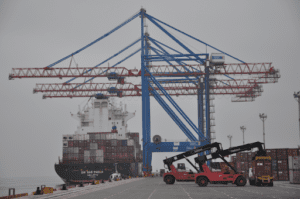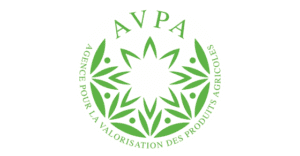
The cargo terminal will be launched at the Odessa international airport in 2022, Director General of the enterprise Vitaliy Semenchenko said in an exclusive interview with Interfax-Ukraine.
“We have an arrangement as a letter of understanding, which allow us to discuss, without sealing any rights and obligations, but confirming our interest, with the largest European cargo operator. We are now in almost a daily dialog on technical issues. The terminal is being formed, its volume and structure. It will definitely work in 2022,” Semenchenko said.
According to him, the project of the cargo terminal will be implemented using private investments, but their volume has not yet been named, since it depends, first of all, on the requirements of future tenants. “There will definitely be a cooling zone, a zone of dangerous goods, the necessary equipment will be bought depending from their volume,” Semenchenko said.

Ammonium nitrate in Ukraine as of July 26, 2021 had risen in price by 80% compared to the same date in 2020, to UAH 12,100 per tonne ($448 at the current exchange rate), price growth to the April 2015 level due to the rise in prices for nitrogen fertilizers in international markets, the Ukrainian Agribusiness Club (UCAB) reported on its website on Tuesday.
“The increase in prices for nitrate occurred amid the growth of the cost of nitrogen fertilizers – urea, ammonium nitrate and urea-ammonium mixture in the international markets. First of all, this is due to the growing demand in Asia and the rise in prices for natural gas, which is one of the main components in the production of fertilizers. As a result, the international prices for ammonium nitrate in the Black Sea ports last week reached $310 per tonne,” the UCAB said.
According to the UCAB, the difference between the cost of ammonium nitrate in the domestic market and international quotations in the Black Sea ports increased from an average value of $45 per tonne in 2020 to the current $63 per tonne (by 37%). This indicator reflects additional logistics costs for fertilizer importers, while for the domestic producer it is mainly an additional net margin in price.
The Ukrainian Agribusiness Club said that in Ukraine, ammonium nitrate is produced by three enterprises of the Ostchem holding company of the Group DF group – PrJSC Rivneazot, PrJSC Azot (Cherkasy) and PrJSC Severodonetsk Azot (Donetsk region).
“In June 2021, more than 9,000 tonnes of ammonium nitrate was exported from Ukraine at an average price of $249 per tonne, which is significantly lower than the price of imports and the domestic market. Thus, Ukrainian agricultural producers continue to supply nitrogen fertilizers at inflated prices,” UCAB said.
An increase in fertilizer prices with a simultaneous decrease in prices for grain crops in Ukraine significantly reduces the expected profitability in crop production and has a negative impact on the financial indicators of the agricultural industry: at the beginning of the year, the price of milling wheat reached UAH 9,000 per tonne, having decreased by a quarter as of the end of July, to UAH 6,500 per tonne.

The European Investment Bank (EIB) has provided EUR 49 million investments to carry out a comprehensive energy-efficient modernisation of the majority of their buildings of six Ukrainian universities under the Ukraine Higher Education project and they will also receive the E5P grant in the amount of EUR 10 million.
“Six Ukrainian universities will carry out a comprehensive energy-efficient modernisation of the majority of their buildings with the support of EUR 49 million investments of the European Investment Bank (EIB) and the E5P grant in the amount of EUR 10 million,” the EIB and the Ministry of Education of Ukraine said in a press release on Tuesday.
Chernihiv Polytechnic National University, Lviv Polytechnic National University, National Technical University Kharkiv Polytechnic Institute, National University Yuri Kondratiuk Poltava Polytechnic, Sumy State University and Vinnytsia National Technical University actively participate in the Phase I of the Ukraine Higher Education Project to improve their teaching and research facilities and dormitories.
“They will soon be joined by eight more higher education establishments, which were selected on a competitive basis to take part in the Phase II of the Project,” the bank and the ministry said in the press release.
The implementation of thermal modernisation works at the Phase I universities is expected to start in the fall of 2022.
The EIB is investing EUR 120 million in a comprehensive thermal refurbishment of six Ukrainian universities in the framework of the Ukraine Higher Education Project, which is an integral part of the joint EIB and EU support provided to Ukraine in the field of energy efficiency. The project is also co-financed by the Nordic Environment Finance Corporation (Nefco) in the amount of EUR 30 million.
EIB, ENERGY-EFFICIENT, EUROPEAN INVESTMENT BANK, LOAN, MODERNIZATION, UNIVERSITY
National bank of Ukraine’s official rates as of 28/07/21

Source: National Bank of Ukraine

AVPA –Agency for the Valuation of Agricultural Products, is a non-governmental, non-profit organization, mainly composed of producers and taste enthusiast. The Association sets itself the objective of contributing to the best promotion of exceptional agricultural productions for the benefit of their producers. To do this, AVPA organizes 4 International Contest AVPA-Paris: “Teas of the World”, “Coffees roasted at Origin”, “Chocolates processed at Origin “, and ” World Edible Oils”.
This year AVPA organize its 4th international “Teas of the world” contest to encourage and support producers in this period of economic recovery.
AVPA contest helps tea producers
∙ in recognition of their exceptional quality in social and professional environment
∙ stand out from other producers, AVPA medals are the symbol of high quality and trust,
∙ to explore new markets around the globe, and more importantly in local geography.
The “Teas of the world” contest is organized in two very distinct parts:
I. Monovarietal teas (Camellia Sinensis). Jury President – Lydia Gautier
II. Infusions (infusion plants other than Camellia Sinensis), blends and flavoured teas, Jury President -Carine Baudry
The objective of the AVPA contest is to promote the recognition of exceptional producers by focusing primarily on organoleptic aspects. To learn more click here: Contest Rules.
Your organization has a great influence among tea producers in your country. To inform the tea producers in your country, we need your help and assistance. We are grateful for your time and consideration and request you to help spread this information to cooperatives and producers that are likely to be interested in this contest.
AVPA team and particularly Ksenia HLEAP (ksenia.hleap@avpa.fr) who is in charge of this project remain at your disposal for any question/queries you may have.
Philippe Juglar
President
www.avpa.fr